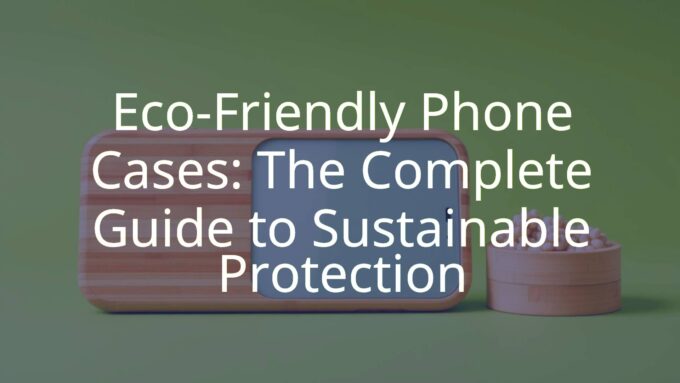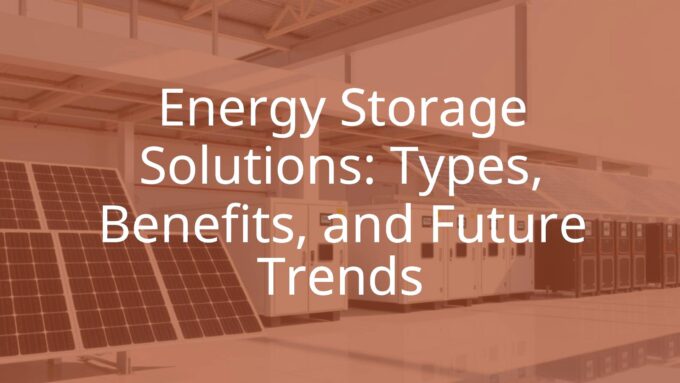Switching to a zero waste lifestyle is not just a fad; it’s a practical way of living that brings many positive changes for individuals, the environment, the economy, and whole communities. By choosing to create less waste, we help keep our environment cleaner, support local businesses, and bring people together. Zero waste also challenges our “take, use, throw away” way of living, moving us toward a system where things are kept, shared, and reused. What makes zero waste powerful is how helping in one area also boosts others, setting off a chain reaction of good outcomes.

Understanding the Value of Zero Waste
Living with a zero waste mindset is all about reducing harm by making less trash. While the idea of making “zero” waste may sound extreme, most people view it as an effort to cut waste wherever possible-from how things are made and packaged to how we use and dispose of them. The main point is to make progress together, realizing that many small changes add up to big results for the planet and future generations.
We are seeing why zero waste matters more and more every day. The way we consume now creates huge amounts of garbage that pollute the air, water, and soil, and fuel global warming. The U.S. EPA says that making and using products (including food, goods, and packaging) causes about 42% of greenhouse gas emissions. Choosing zero waste fights this pattern by aiming to change both what we use and how we handle it, paving the way for a greener future.
Environmental Benefits of Going Zero Waste
Adopting zero waste has clear benefits for the environment. It helps tackle old habits that harm our planet and offers better ways to care for nature.
Less Waste in Landfills and Lower Use of Resources
One clear result of zero waste is sending much less trash to landfills. By reducing, reusing, and recycling, fewer new things need to be made, and the ones we already have last longer. This means less waste piling up in landfills, which are major sources of environmental problems. For example, when New York City closed its last landfill in 2001, it started sending all its garbage to other states, showing just how big the waste problem is.
Did you know about 70% of landfill waste in the U.S. could be recycled? By keeping those materials out of the dump, we save space and also preserve raw materials that would be taken from the earth. Switching from “use and toss” to keeping things in use is good for the planet.

Lower Greenhouse Gas and Methane Pollution
Landfills don’t just look bad-they produce gases that heat up our planet. When natural trash breaks down underground, it gives off landfill gas (a mix of roughly 50% methane and 50% carbon dioxide). Methane traps much more heat in the atmosphere than carbon dioxide. In fact, landfills are the third-biggest source of methane pollution from human activity in the U.S.
Relying less on landfills-especially by composting food scraps instead-slows the release of these gases. Composting lets scraps break down in the open air, stopping methane from forming and making healthy compost for the soil. This helps cool the planet and supports better, healthier soil for plants.
Fights Plastic and Chemical Pollution
Zero waste is a strong way to fight plastic pollution. Since the 1950s, over 6 billion tons of plastic have been made, but hardly any has been recycled. Most plastic ends up in landfills or the ocean, where it poisons animals and eventually breaks down into microplastics that hurt life for centuries. Zero waste cuts out single-use plastics and encourages reusable options instead.
Choosing zero waste also means picking products with fewer harmful chemicals in their contents and packaging. Reducing plastic use limits health risks from chemicals like BPA and other additives that can affect our bodies. Choosing glass, metal, or compostable materials creates a safer home and environment.

Saves Raw Resources and Protects Nature
Our current use-it-once culture uses a lot of energy and takes a toll on wild places-whether it’s chopping down trees, mining, or drilling for oil. Making new products from scratch uses up energy and pollutes land, water, and air.
When we reduce and reuse, we don’t need as many new things, and we keep them around longer. Recycling gives factories materials that are much easier and cheaper to use than making things out of new resources. Here’s a simple table to show the energy savings:
| Material | % Less Energy Used When Recycling |
|---|---|
| Aluminum | 95% |
| Paper | 60% |
| Plastic | 70% |
| Glass | 30% |
With less pollution and fewer wild places destroyed, ecosystems stand a better chance.
Economic Benefits of Going Zero Waste
Zero waste is also good for your wallet and your community. It helps save families money and creates more jobs locally.
Save Money at Home
Although buying some reusable items may cost more at first, you spend less over time by using them again and again. Zero waste means thinking before buying, which cuts out extra spending on things we don’t need. For example, making use of leftovers can save hundreds of dollars a year. One zero waste advocate, Kathryn Kellogg, shared that she saved $18,000 in two years by living this way.
More Local Jobs
Recycling, repairing, and composting require more workers than trash incinerators or landfills. Recycling provides about nine times as many jobs as landfilling, and reuse can create up to 30 times more jobs. These jobs include sorting recycling, fixing used goods, running secondhand stores, and teaching others repair skills. Money spent locally in these ways tends to stay in the community and help it grow stronger.

Builds Strong Local Economies
With zero waste, one person’s unwanted items can become useful for someone else. This keeps goods and money circulating in the community. For example, New York City spends over $300 million yearly sending waste to landfills elsewhere. Building recycling and repair businesses at home keeps that money local. Also, rules that make companies responsible for the waste their products create push them to make things that last and are easier to recycle. In Toronto, such policies could save the city about $30 million each year.
Health and Wellbeing Gains from Zero Waste
Zero waste is not just about rubbish; it helps people live healthier, safer lives and keeps communities cleaner.
Lower Exposure to Harmful Chemicals
One big benefit is having less contact with toxic stuff. Many cleaning and personal care products, as well as lots of packaging, come with hidden chemicals. Zero waste encourages using simpler, safer ingredients and choosing packaging made from glass or metal instead of plastic, which often contains substances like BPA. This helps protect your family’s health and makes your home safer.
Supports Healthier Eating Habits
Zero waste habits often lead to better diets since you end up buying less packaged food and more whole foods. Cooking and shopping for unpackaged foods means eating fresher, healthier meals. This shift can improve physical health and help you become more thoughtful about your choices.
Being mindful about what you buy and use can also reduce stress and help you spend less money on things you don’t need, making life more manageable.
Cuts Air and Water Pollution in Your Town
Communities benefit when everyone sends less waste to dumps or incinerators. Less traffic from garbage trucks means fewer emissions. Most importantly, avoiding landfills and incinerators keeps harmful gases and chemicals out of the air and water. This is especially important for poorer areas, which often face the worst problems from pollution.
Cleaner neighborhoods mean healthier people and safer water. It also reduces problems like asthma and other breathing issues for everyone, especially in areas near waste sites.
How Zero Waste Brings People Together
Zero waste is about more than just personal habits-it brings people together, solves fairness issues, and helps everyone access what they need.
Encourages Working Together and Sharing Knowledge
When people commit to reducing waste, it often starts conversations and community action. Groups form online and in neighborhoods to swap tips and help each other solve problems. Sharing tools, community composting, and repair workshops are all examples of how working together reduces waste and costs while building closer connections among neighbors.
Supports Justice and Fairness
Zero waste helps tackle the unfair toll that waste and pollution often take on less wealthy neighborhoods. Landfills and incinerators are frequently located in these areas, causing health problems. Reducing waste and improving how we handle it eases this burden.
Programs that share food, clothes, and household goods with people who need them also cut down on waste while helping families. This way, zero waste supports both the planet and social fairness.
Makes Items Easier to Get and Share
Zero waste calls for making tools, products, and services easy for all to access, no matter where people live or how much they earn. Libraries for tools, rental stores, and thrift shops help more people reuse items and avoid buying new things. Sharing instead of always owning is especially helpful in cities where storage space is limited.
By setting up systems where items are reused or shared, resources stretch further, and communities become stronger.

Zero Waste’s Role in Fighting Climate Change
Even though zero waste might feel like a small local effort, together these choices make a serious contribution to fighting climate change worldwide.
Reduces Emissions from Making and Throwing Away Goods
Almost half of the world’s greenhouse gases come from making, transporting, and throwing out products, food, and fuel. By buying less, choosing long-lasting goods, and reusing or recycling them, we use less energy and generate less pollution. This can add up to a major reduction in the climate problems caused by waste.
A Fast and Cost-Effective Climate Solution
Zero waste solutions can lower greenhouse gas emissions by more than 400 million metric tons of CO2 each year by 2030, about as much as shutting down 80 coal power plants in the U.S. The big climate savings come from the huge drop in energy use when companies use recycled materials. Here is a simple summary:
| Action | Main Benefit |
|---|---|
| Recycling | 30-90% less energy use; fewer emissions |
| Composting | Reduces methane and improves soil |
| Reuse | Less production and waste |
These steps can be done now with technology we already have, bringing quick results and helping as we switch to better energy and transport systems.
Easy Steps for Going Zero Waste
Starting a zero waste lifestyle doesn’t have to be overwhelming. Breaking it into small steps and making changes that fit your life makes it much easier.
Be a Careful Shopper and Reuse Items
The most important step is thinking before buying anything. Ask yourself, “Do I really need this?” or “Could I get this used?” Saying no to things like plastic bags, straws, and giveaway items keeps waste down. Using your own shopping bags, food containers, and going digital for receipts are simple ways to cut trash.
Try to reuse instead of throwing things away. Keep glass jars for storing food, switch to washable containers, or borrow instead of buying new. Sharing or donating still-usable items also helps reduce waste.
Compost and Prevent Food Waste
Food waste is a big part of trash and a driver of methane in landfills. Composting kitchen scraps and yard waste is a great way to help. Even if you don’t have a yard, many cities offer curbside or community composting options.
Planning meals and eating leftovers can prevent food from getting thrown out. In the U.S., up to 40% of food is wasted, so there’s a big chance to save money and help the environment here.
Pick Quality, Long-Lasting Products
Buying sturdy items pays off over time. High-quality clothing, kitchen gadgets, and other goods last and save you from buying replacements. Supporting companies that use eco-friendly and recyclable packaging also helps move the market in a better direction. Buying in bulk with your own containers cuts down on packaging waste, too.
Common Questions About Zero Waste
Lots of people wonder how much difference going zero waste makes and whether it’s possible for everyone. Here are clear answers:
Does Zero Waste Really Matter?
Yes, it does. Every little change adds up. One person who cuts back on trash for a year keeps thousands of pounds of garbage out of the landfill. When many people join in, the effects multiply: cleaner communities, less pollution, savings on bills, and progress on climate change. Talking about these efforts helps change wider systems, too.
Can Everyone Do Zero Waste?
No one can make literally zero waste, because we can’t control everything outside our homes-like how products are made or packaged. Zero waste is about doing your best and finding ways to cut down your trash. Where you live and what programs exist locally matter, but anyone can make some changes, no matter their location or income. It’s about making better choices, not being perfect.
How Fast Will We See Results?
Personal benefits-like spending less and having tidier spaces-show up right away. Eating better and using safer products can also make you feel healthier quickly. Communities that recycle and compost more see less trash and cleaner environments in a short time. Job growth and more local spending follow soon after as zero waste programs grow. The best part is, a lot of these solutions can start working right now.












Leave a comment